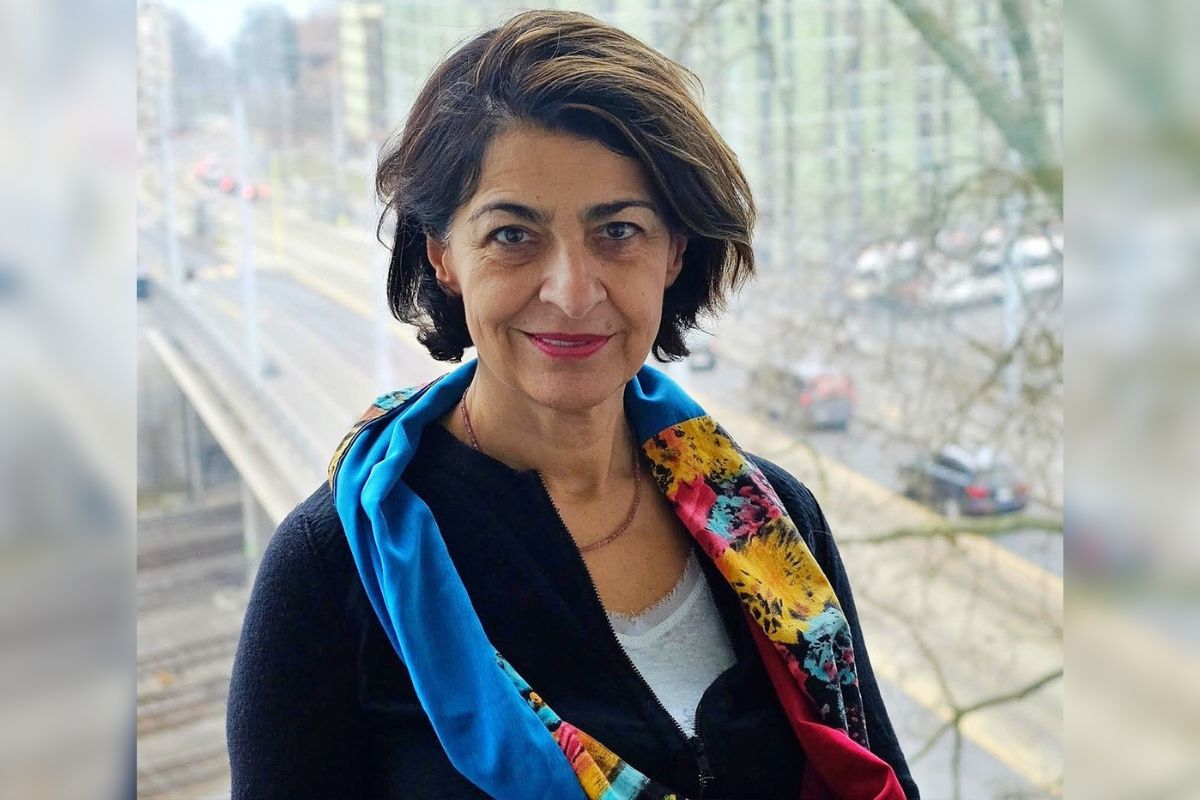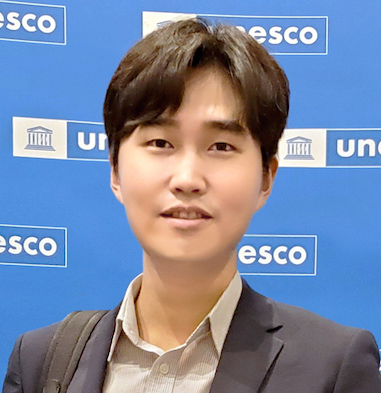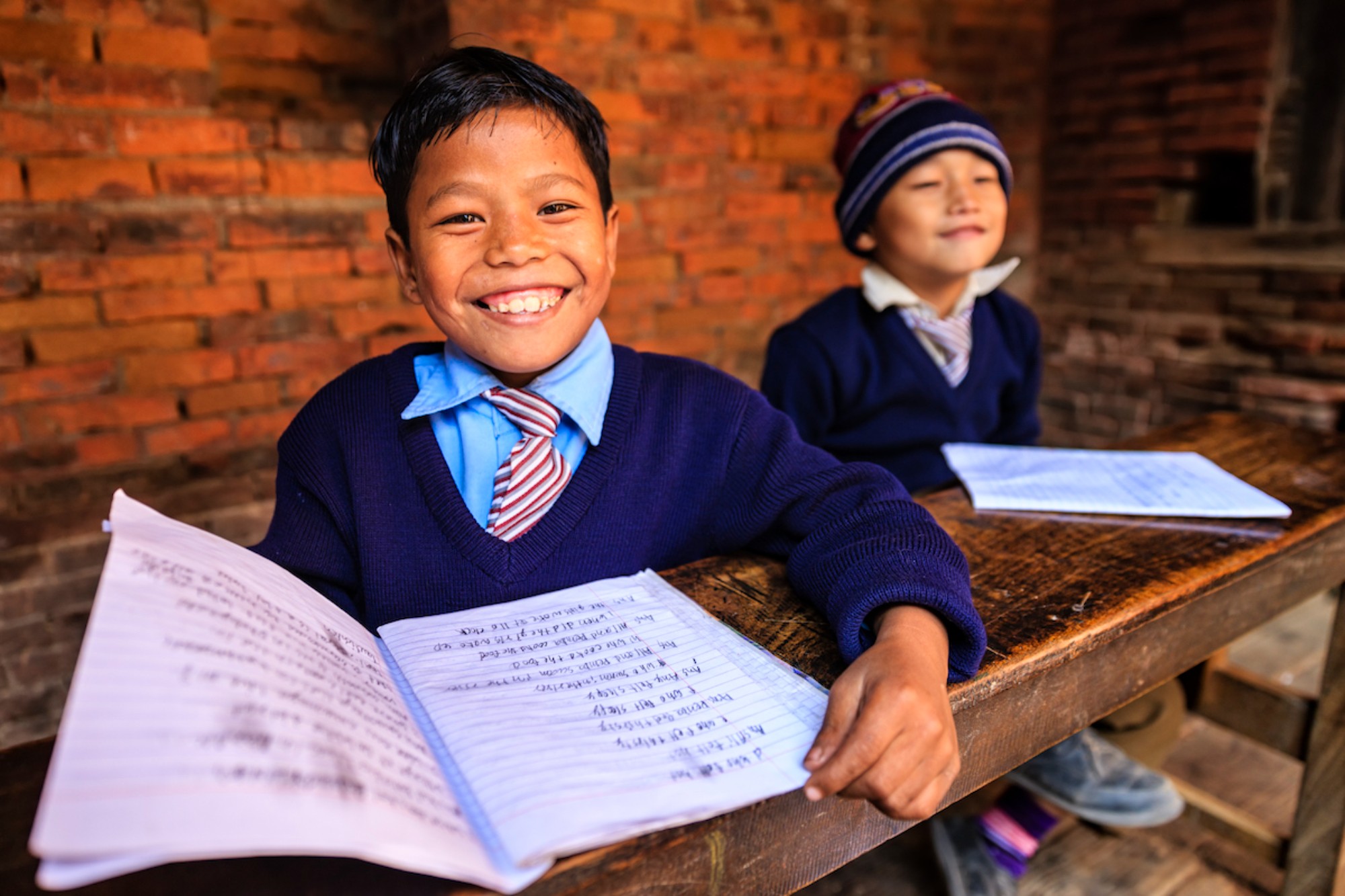For Gita Steiner-Khamsi, 1995 was a whirlwind year full of successes and new beginnings. It was the year she began her career as a Teachers College professor, but also the very same year that she made her move from Switzerland to the United States.
Now almost 28 years later, Steiner-Khamsi, Professor of Education at Teachers College, was recently named the first-ever Chair in Comparative Education Policy for the United Nations Educational, Scientific and Cultural Organization (UNESCO). The Chair is hosted by the Geneva Graduate Institute of International and Development Studies in Switzerland.
“It’s an honor,” shared Steiner-Khamsi, who received the honorary title for her transformative work while teaching comparative education studies on a part-time basis while seconded from TC to the Geneva Graduate Institute. “This role will allow me to continue to strengthen my relationship with Geneva and collaborate with other researchers around the globe. UNESCO opens doors with governments globally. Having that entry point is key in comparative policy studies. It was a match made in heaven."
We sat down with Steiner-Khamsi to talk about her exciting new development:
Congratulations on your appointment as the UNESCO Chair in Comparative Education Policy. Can you walk us through why this role is so crucial?
SK: “The role is critical because it was created to amplify, surface, and strengthen education policy expertise, specifically in low-income and aid-dependent countries of the Global South. We are hoping to establish research and teaching of school reform studies in graduate schools of education of the Global South. This will help to mitigate the dependence on international consultants that currently do school reform design, and evaluations on behalf of global actors such as the Global Partnership for Education, UNICEF, and the World Bank.
Another key objective of the Chair is to streamline and communicate policy research more effectively in the Global South by means of policy briefs, videos, podcasts and other types of communication products.

Gita Steiner-Khamsi, Professor of Education. (Photo: TC Archives)
What does this role mean to you as an educator and a researcher? What actions will you take as Chair?
SK: “There are many things that excite me about the role. As an educator, I know there is a real demand for education policy studies worldwide. In most countries, graduate schools of education exclusively focus on teacher education and on the preparation of school administrators. There is a great demand for systems thinking, culturally sensitive school reforms, and capacity strengthening in the area of policy analysis. I’m surprised that no one has tapped into that demand already. I’m eager to move graduate schools in the direction of offering a comprehensive program related to education.
As a researcher who has worked in the Research and Development unit of the Ministry of Education in the Canton of Zurich (Switzerland) for close to ten years, I’m eager to use my experience to professionalize the field of education policy studies globally. Mobilizing policy reform requires deep understanding and careful analysis. What is needed to implement change? Further, what are the resistances against reform and why? What is the role of civil society to demand and sustain change? I want to work to overcome these challenges on a global scale.”
How does your role intersect with your work at Teachers College?
SK: “There is a strong connection between the work I’m doing at TC and the work I hope to do with UNESCO. In fact, I’ve already crossed paths with fellow TC community members here at Geneva. The current UNESCO Co-Chair, Chanwoong Baek (Ph.D. ‘20), is a TC alum and the Assistant Professor of Comparative and International Education at the Institute. It’s nice because we can cross-collaborate on initiatives at TC and vice versa.
As a Professor in TC’s International and Comparative Education program, I’ve learned that there is such high demand and interest in education policy reform. Many of my students hope to take what they learn in my classroom and translate it into reform and teachings when they return to their own countries. I try to bring TC to the world and the world to TC.

It is very exciting to serve as the Co-Chair and work with Gita who has extensive expertise and experience in comparative education policy. I have collaborated with Gita in many different capacities, and I have always been impressed and inspired by her passion, curiosity for knowledge, and critical thinking. Her work on policy transfer and globalization has made significant theoretical contributions to the field and has been meaningfully translated into practice. These contributions, coupled with her lasting commitment to the professionalization of comparative and international education, make Gita an ideal chairholder for the UNESCO Chair in Comparative Education Policy.
Yet more importantly, the work I will do as UNESCO Chair is pro bono. It’s humanitarian work. It’s about strengthening and supporting undergraduate institutions in other countries wherever I am able. Our UNESCO events are always hybrid (in-person and Zoom) and bilingual and multilingual because we want the world to participate. This kind of role can help TC continue to build global education policy partners worldwide.”
Talk about the UNESCO event in collaboration with TC happening on March 30. What can we anticipate and expect to take away from this special event?
SK: “It’s an international symposium titled “Ambedkar, Dewey, and the Evolution of Pragmatism in India.” The keynote speaker is Scott R. Stroud, University of Texas at Austin, who published a book with the title of the symposium. It will be a cross-collaborative event with Teachers College and UNESCO Chair/Geneva Graduate Institute, which is exciting. The symposium is particularly special because it was initiated by a current student in TC’s International and Comparative Education program, Vikas Tadad (M.A. ‘23).
We will have a keynote speaker and a panel of speakers that I will moderate. Vikas will be speaking as one of the panelists at the event, too. We’ve invited human rights activists, organizations, and universities to participate, as well as the entire TC community. I can’t wait to see everyone unite for such a powerful cause!
Yet more importantly, the symposium is critical because it focuses on the larger agenda of decolonizing the intellectual tradition by bringing in Dr. B R Ambedkar, one of India’s most notable anti-caste philosophers and reformers, in conversation with American pragmatist, John Dewey. Ambedkar was a student of Dewey at Columbia University and later on went on to spearhead the civil rights movement for untouchables and become the chief architect of India’s constitution.
In light of the ongoing anti-caste struggle in the United States, we hope this global event will ignite a dialogue that educates the western audience about the criticality of caste and Ambedkar’s democratic approach towards imagining societies free from race-caste-gender oppression.”
